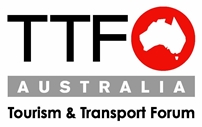
Auditor-General’s report highlights need for open tendering and bus franchising
The Tourism & Transport Forum Australia (TTF) has welcomed a report from the NSW Acting Auditor-General that found Sydney commuters are seeing improved and more efficient bus services delivered by the private sector.
This outcome is a direct result of state government reforms that delivered more competitive tendering processes, said TTF CEO Margy Osmond. She said the report did however highlight difficulties with ensuring that government-run STA buses operated to the same KPI standards as privately operated services.
“The report’s findings clearly add to the case for franchising STA buses,” Ms Osmond said. “The Auditor-General has found that current governance arrangements do not provide a clear separation of purchaser and provider for STA buses.
“The report has highlighted that STA services are not subject to KPI penalties for poor performance or incentives for patronage growth and that there is no provision for market-testing the price of STA services through competitive tendering. The clearest way of ensuring that service KPIs are achieved and that costs are reasonable would be to put the STA’s four regions in Sydney to tender.
“TTF has been a strong support for franchising public transport services to bring private sector rigour and experience to bus, rail and ferry operations.”
Ms Osmond said franchising delivers savings that can be used to fund new public transport services and often leads to innovative and better customer service.
“It is therefore pleasing that the Acting Auditor-General has found that private operators have been meeting most of their KPIs, customer satisfaction and patronage are improving and operating costs are lower, although I note punctuality remains a problem. Again, however, STA punctuality is worse than for private operators.
“The report has highlighted the benefits of an open tendering process for existing private contracts and we would urge the government to extend these benefits to commuters and taxpayers in those regions that remain under STA control.”
